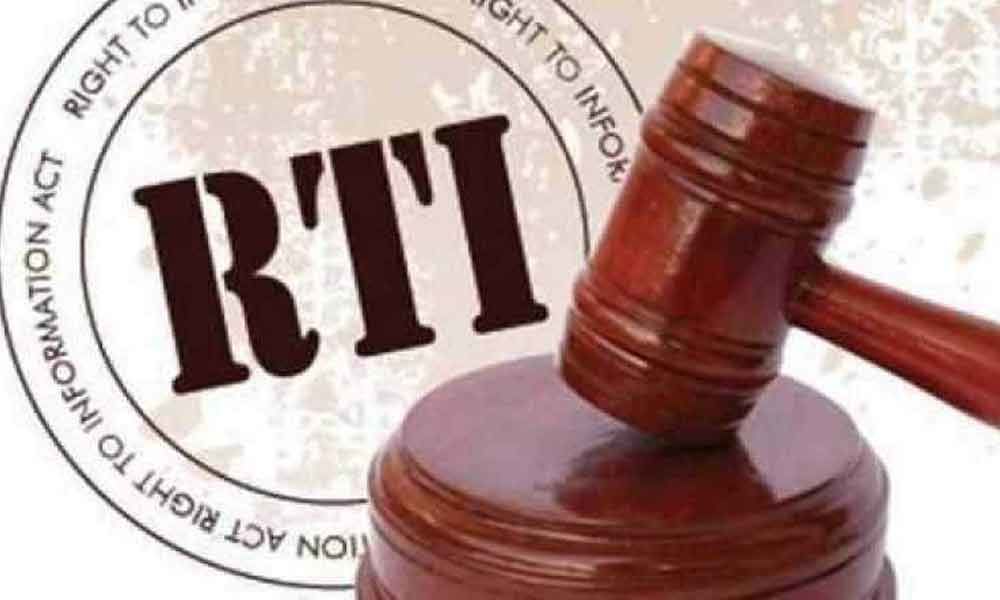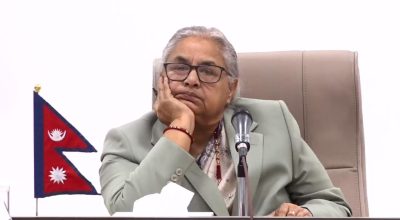
-Krishna Sapkota/RSS
New Delhi (India) : Commissioner of the Central Information Commission of India, Bimal Julka has said that the Right to Information (RTI) was behind the changing behavior of democracy in digital India.
“Since a burgeoning number of RTI applications have been registered in India in a year to demand information of public interest, the ecosystem of access, engagement, empowerment and exercise of citizenship is deepening” he said while addressing the delegates comprising civil society and media representatives from Nepal, Bangladesh, Sri Lanka, the Maldives and India at the office of central information Commission of India in New Delhi on Friday.
Delivering his presentation, he noted, “It is mandatorily obligation for the public authorities to disclose various aspects of their structures and functioning in public interest. This is an essential ingredient for broadening and deepening transparency regime brought into being by the RTI Act”.
According to the RTI Act-2005 of India, the public authority means any authority or body or institution of self government established by or under the Constitution, any other laws made by the Parliament and State Legislature and notification issued by the appropriate government. “It includes any ‘body’ owned, controlled or substantially financed and non-government organizations substantially financed directly or indirectly by funds provided by the appropriate government”.
According to the official website of the CIC, there is increasing number of registration of public authorities with the CIC. It has reached 2,145 in 2018-19 from 938 in 2005-06. RTI application received also has increased by 1 percent in the year 2018/19 in comparison to previous year.
In 2018/19, the total number of RTI requests made to the public authorities of India was 1,630,048 whereas total number of appeals received was 151,481 and disposed was 99,618.
“In order to make its functions effective and efficient the CIC has set up e-court and video conferencing. The case is scheduled for hearing once the case in e-book form reaches the Information Commissioners”, briefed Yogesh Kumar Singhal, Joint Secretary at the CIC.
He added when the hearing is scheduled the system generates SMS/e-mail alerts to the applicant besides generating physical notice of the hearing. “The Commission offers the facility of hearing through video conferencing at district headquarters of National Informatics Centres. The commission had conducted 12,309 video conferences in the year 2017/18 while it is 8,077 till the date of the current year”.
Transparency Audit
The CIC has come up with an idea to conduct transparency audit to ascertain the quality of proactive disclosure of RTI Act made by various public authorities. The 2018-19 Annual Progress Report of the CIC noted that comprehensive information disclosures on websites of public authorities make a significant difference in terms of the public interface. “The increase in the trust between the public and the public authorities brings in huge benefits in terms of improvement in public service delivery”.
Among the criteria recommended by the Commission for undertaking transparency audit are regularity of website audit, setting up a web-based mechanism to update dates of the websites, sending out advance reminders and demanding compliances from the nodal agencies, setting up a separate dedicated unit for website monitoring and auditing, audit oversight under the supervision of central authority and designing a scheme of incentives.
“The pro-poor measures, including cost-free simple RTI application filing process accompanied by connectivity measures such as video conferencing are helping RTI to deepen its roots in rural and deprived parts of the country”, said commissioner Julka, asserting this law has made the people at margin more confident and dignified to claim their rights and entitlements.
Given the long experience of RTI in India, South Asian countries including Nepal can learn lessons from the Indian RTI practice in the new governance context, which is crucial for setup of best practices.
—











